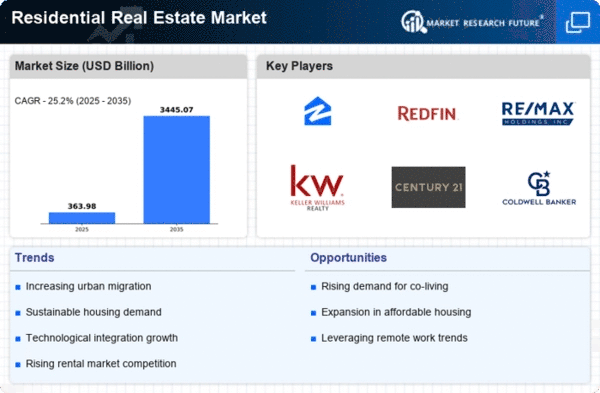Top Industry Leaders in the Residential Real Estate Market

The residential real estate market is a dynamic ecosystem, constantly evolving with the ebb and flow of economic tides, changing demographics, and technological advancements. Understanding the competitive landscape is crucial for anyone navigating this complex terrain, whether you're a seasoned realtor, a first-time homebuyer, or an investor seeking lucrative opportunities.
Strategies for Market Domination:
Market players employ a diverse arsenal of strategies to carve their niche and secure market share. Here are some key tactics:
-
Specialization: Niche players cater to specific segments like luxury homes, eco-friendly properties, or starter homes, offering tailored services and expertise. -
Technology Integration: Proptech platforms are revolutionizing the game with virtual tours, AI-powered market analysis, and streamlined communication tools. Leading companies like Zillow and Redfin leverage data analytics to provide personalized recommendations and enhance user experience. -
Brand Building: Establishing a strong brand reputation through community engagement, social media presence, and exceptional customer service builds trust and loyalty. -
Partnerships and Acquisitions: Collaborations with mortgage lenders, builders, and other players in the ecosystem create synergies and expand reach. Acquisitions can be a fast-track to market dominance, as seen in the recent merger of RE/MAX and Keller Williams. -
Diversification: Offering a range of services beyond traditional brokerage, such as property management, wealth management, and relocation assistance, creates a one-stop shop for clients and diversifies revenue streams.
Factors Shaping Market Share:
While strategies play a crucial role, market share is also influenced by several external factors:
-
Economic Conditions: Interest rates, inflation, and job markets directly impact housing affordability and demand. The recent rise in interest rates in August 2023 has cooled down the market, prompting a shift from seller's to buyer's market in some regions. -
Demographic Trends: Aging populations, changing family structures, and the rise of millennials as homebuyers influence the types of properties in demand. The growing popularity of co-living spaces and smaller apartments caters to the needs of young professionals and urban dwellers. -
Location, Location, Location: Proximity to amenities, access to transportation, and the overall quality of life in a neighborhood significantly impact property values and competition. -
Regulations and Policies: Government policies on housing affordability, zoning, and environmental regulations can affect supply and demand. For instance, the recent relaxation of foreign investment regulations in some countries has attracted international buyers, boosting competition in certain segments.
Key Companies in the Residential Real Estate market include
- Savills Plc
- Arabtec Holding
- Sun Hung Kai Properties Limited
- Coldwell Banker Real Estate LLC
- Raubex Group Limited
- IJM Corporation Berhad
- Hochtief Corporation
- Sotheby's International Realty Affiliates LLC
- Christie’s International Real Estate
- Lennar Corporation
Recent Development
-
September 2023: Government initiatives and tax breaks aimed at boosting first-time homeownership show promising results. The rental market remains robust due to inventory shortages in the buying segment. -
October 2023: Proptech startups secure record funding, highlighting the growing investor confidence in technology's role in transforming the industry. Online real estate platforms are witnessing significant user growth. -
November 2023: Sustainability initiatives gain momentum, with green building certifications becoming increasingly sought-after by buyers and developers. Energy-efficient homes command premium prices.

